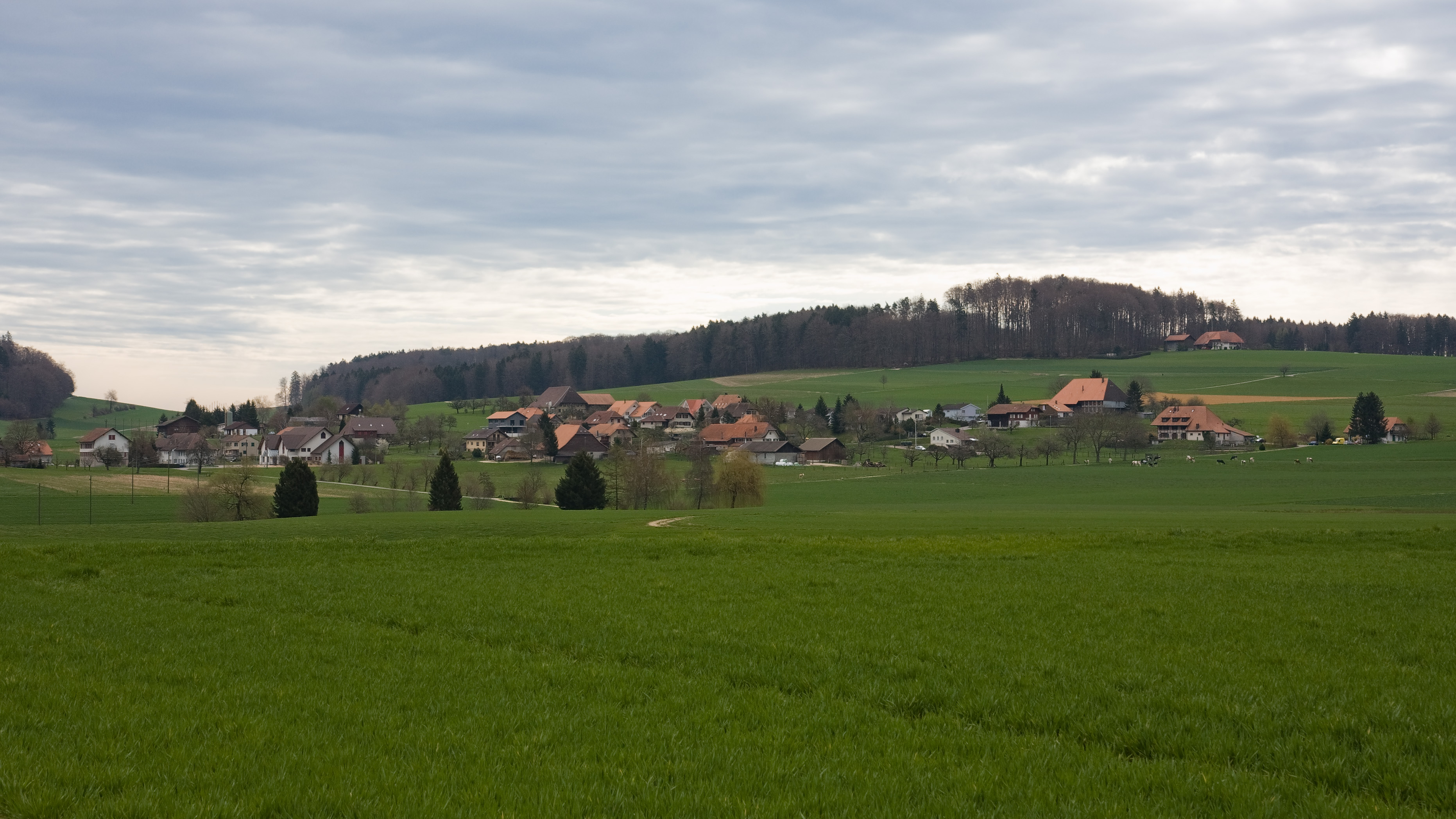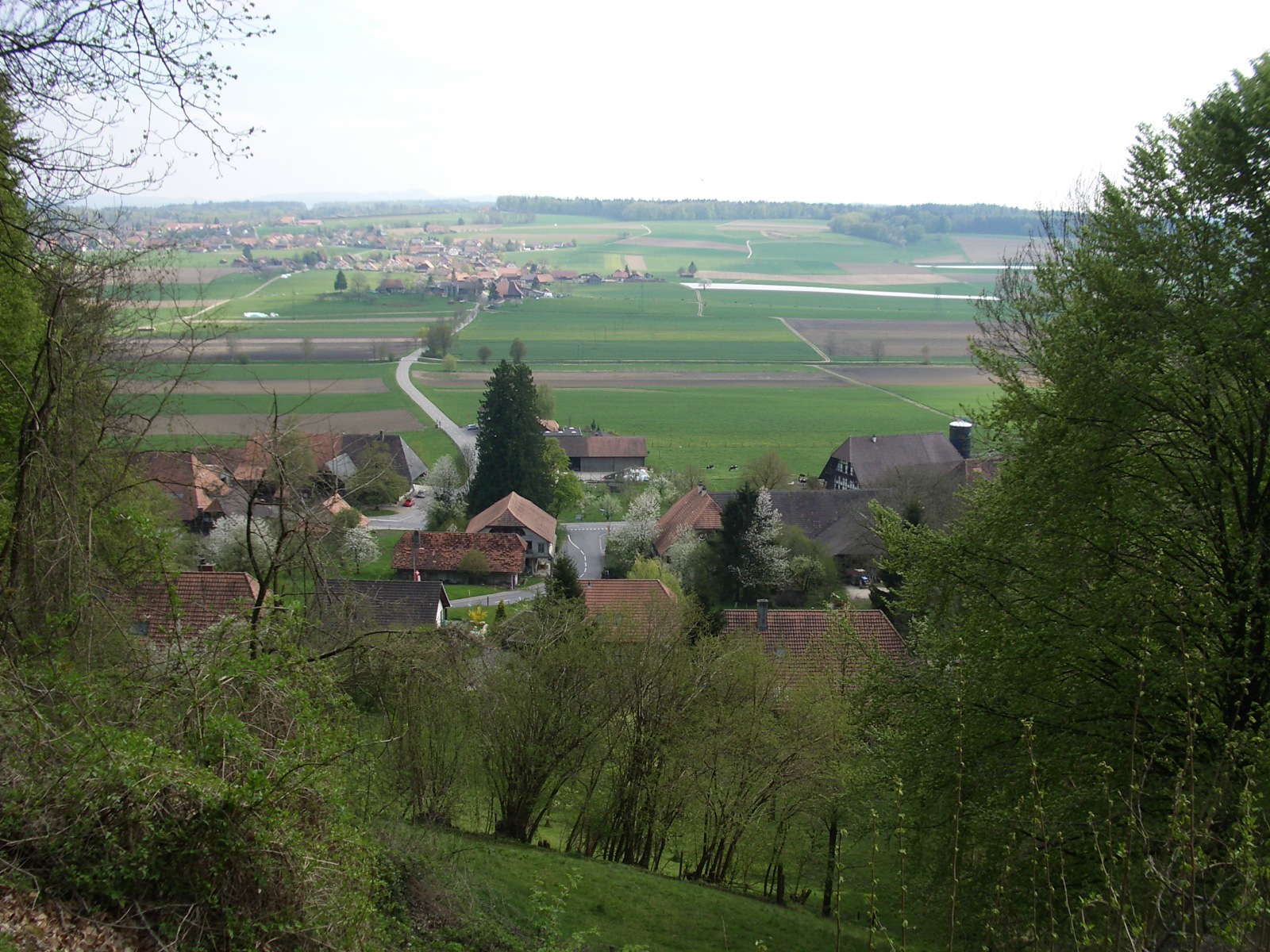|
Biezwil
Biezwil is a municipality in the district of Bucheggberg, in the canton of Solothurn, Switzerland. History Biezwil is first mentioned in 1255 as ''in Beizwile ''. In 1276 it was mentioned as ''zue Biezwile'' and in 1279 as ''de Biezwile''. Geography Biezwil has an area, , of . Of this area, or 51.9% is used for agricultural purposes, while or 41.4% is forested. Of the rest of the land, or 6.7% is settled (buildings or roads).Swiss Federal Statistical Office-Land Use Statistics 2009 data accessed 25 March 2010 Of the built up area, housing and buildings made up 4.8% and transportation infrastructure made up 1.9%. Out of the forested land, all of the forested land area is covered with heavy forests. Of the agricultural land, 39.0% is used for gro ... [...More Info...] [...Related Items...] OR: [Wikipedia] [Google] [Baidu] |
Bucheggberg (district)
Bucheggberg District is one of the ten districts of the canton of Solothurn in Switzerland, situated to the southwest of the canton. Together with the Wasseramt District, it forms the ''Amtei'' (electoral district) of Wasseramt-Bucheggberg. It has a population of (as of ). Municipalities Bucheggberg District contains the following municipalities: Mergers On 1 January 1961 the former municipalities of Lüterkofen and Ichertswil merged to form the new municipality of Lüterkofen-Ichertswil. On 1 January 1995 the former municipalities of Gächliwil and Lüterswil merged to form the new municipality of Lüterswil-Gächliwil.Nomenklaturen – Amtliches Gemeindeverzeichnis der Schweiz accessed 4 April 2011 On 1 January 2010 the mu ... [...More Info...] [...Related Items...] OR: [Wikipedia] [Google] [Baidu] |
Lüterswil-Gächliwil
Lüterswil-Gächliwil is a municipality in the district of Bucheggberg, in the canton of Solothurn, Switzerland. It was formed in 1994 from the merger of the two previously independent municipalities of Lüterswil and Gächliwil. History Lüterswil is first mentioned in 1276 as ''zu Lüterswyl'' though this comes from a 17th-century copy of the original document. It was mentioned in 1369 as ''ze Luterswile''. Gächliwil is first mentioned in 1365 as ''Gechlenwil''. Geography Lüterswil-Gächliwil has an area, , of . Of this area, or 62.3% is used for agricultural purposes, while or 32.5% is forested. Of the rest of the land, or 6.2% is settled (buildings or roads).Swiss Federal Statistical Office-Land Use Statistics 2009 data accessed 25 March 2010 [...More Info...] [...Related Items...] OR: [Wikipedia] [Google] [Baidu] |
Oberwil Bei Büren
Oberwil bei Büren is a municipality in the Seeland administrative district in the canton of Bern in Switzerland. History Oberwil bei Büren is first mentioned in 1236 as ''Oberwile''. Various neolithic, Bronze Age and Roman items have been found around the municipality. During the Middle Ages it was part of the Strassberg ''Herrschaft''. Between 1388 and 1393, the entire Strassberg lands were acquired by Bern. Oberwil bei Büren became part of the newly created Bernese bailiwick of Büren. The Church of St. Mauritius was first mentioned in 1275, but it stands on the foundations of earlier churches. The first was an early medieval wooden church from the 7th or 8th century. The first brick church was built on the site in the 9th or 10th century. Four further churches were built before the choir was completely rebuilt in 1506-07. The most recent renovation of the church was in the 17th century. Throughout its history the village has remained a rural, agricultural pla ... [...More Info...] [...Related Items...] OR: [Wikipedia] [Google] [Baidu] |
Schnottwil
Schnottwil is a municipality in the district of Bucheggberg, in the canton of Solothurn, Switzerland. History Schnottwil is first mentioned in 1264 as ''Snotenwiler mansus'' and as ''Snotenwilere molendinum'', though both come from a 15th Century copy of the original. In 1398 it was mentioned as ''Schnottwil''. Geography Schnottwil has an area, , of . Of this area, or 58.9% is used for agricultural purposes, while or 32.2% is forested. Of the rest of the land, or 8.6% is settled (buildings or roads), or 0.1% is either rivers or lakes.Swiss Federal Statistical Office-Land Use Statistics 2009 data accessed 25 March 2010 Of the built up area, housing and buildings made up 5.3% and transportation infrastructure made up 2.5%. Out of the forested lan ... [...More Info...] [...Related Items...] OR: [Wikipedia] [Google] [Baidu] |
Balm Bei Messen
Balm bei Messen was a municipality in the district of Bucheggberg in the canton of Solothurn in Switzerland. On 1 January 2010 the municipalities of Balm bei Messen, Brunnenthal and Oberramsern merged into the municipality of Messen. History Balm bei Messen is first mentioned in 1254 as ''de Balmo''. In 1275 it was mentioned as ''in Balm''. Geography Balm bei Messen has an area, , of . Of this area, or 59.6% is used for agricultural purposes, while or 32.1% is forested. Of the rest of the land, or 7.3% is settled (buildings or roads).Swiss Federal Statistical Office-Land Use Statistics 2009 data Retrieved 25 March 2010 Of the built up area, housing and buildings made up 4.1% and transportation infrastructure made up 3.2%. Out of the forested ... [...More Info...] [...Related Items...] OR: [Wikipedia] [Google] [Baidu] |
Roman Catholic
Roman or Romans most often refers to: *Rome, the capital city of Italy *Ancient Rome, Roman civilization from 8th century BC to 5th century AD *Roman people, the people of ancient Rome *'' Epistle to the Romans'', shortened to ''Romans'', a letter in the New Testament of the Christian Bible Roman or Romans may also refer to: Arts and entertainment Music * Romans (band), a Japanese pop group * ''Roman'' (album), by Sound Horizon, 2006 * ''Roman'' (EP), by Teen Top, 2011 *" Roman (My Dear Boy)", a 2004 single by Morning Musume Film and television * Film Roman, an American animation studio * ''Roman'' (film), a 2006 American suspense-horror film * ''Romans'' (2013 film), an Indian Malayalam comedy film * ''Romans'' (2017 film), a British drama film * ''The Romans'' (''Doctor Who''), a serial in British TV series People *Roman (given name), a given name, including a list of people and fictional characters *Roman (surname), including a list of people named Roman or Romans *Ῥωμ� ... [...More Info...] [...Related Items...] OR: [Wikipedia] [Google] [Baidu] |
Secondary Sector Of The Economy
In macroeconomics, the secondary sector of the economy is an economic sector in the three-sector theory that describes the role of manufacturing. It encompasses industries that produce a finished, usable product or are involved in construction. This sector generally takes the output of the primary sector (i.e. raw materials) and creates finished goods suitable for sale to domestic businesses or consumers and for export (via distribution through the tertiary sector). Many of these industries consume large quantities of energy, require factories and use machinery; they are often classified as light or heavy based on such quantities. This also produces waste materials and waste heat that may cause environmental problems or pollution (see negative externalities). Examples include textile production, car manufacturing, and handicraft. Manufacturing is an important activity in promoting economic growth and development. Nations that export manufactured products tend to generate highe ... [...More Info...] [...Related Items...] OR: [Wikipedia] [Google] [Baidu] |
Tertiary Sector Of The Economy
The tertiary sector of the economy, generally known as the service sector, is the third of the three economic sectors in the three-sector model (also known as the economic cycle). The others are the primary sector (raw materials) and the secondary sector (manufacturing). The tertiary sector consists of the provision of Service (economics), services instead of Product (business), end products. Services (also known as "Intangible good, intangible goods") include attention, advice, access, experience and affective labor. The information economy, production of information has been long regarded as a service, but some economists now attribute it to a fourth sector, called the quaternary sector. The tertiary sector involves the provision of services to other businesses as well as to final consumers. Services may involve the transport, distribution (economics), distribution and sale of goods from a producer to a consumer, as may happen in wholesaler, wholesaling and retailer, retaili ... [...More Info...] [...Related Items...] OR: [Wikipedia] [Google] [Baidu] |
Full-time Equivalent
Full-time equivalent (FTE), or whole time equivalent (WTE), is a unit that indicates the workload of an employee, employed person (or student) in a way that makes workloads or class loads comparable across various contexts. FTE is often used to measure a worker's or student's involvement in a project, or to track cost reductions in an organization. An FTE of 1.0 is equivalent to a full-time worker or student, while an FTE of 0.5 signals half of a full work or school load. United States According to the Federal government of the United States, FTE is defined by the Government Accountability Office (GAO) as the number of total hours worked divided by the maximum number of compensable hours in a full-time schedule as defined by law. For example, if the normal schedule for a quarter is defined as 411.25 hours ([35 hours per week * (52 weeks per year – 5 weeks' regulatory vacation)] / 4), then someone working 100 hours during that quarter represents 100/411.25 = 0.24 FTE. Two employ ... [...More Info...] [...Related Items...] OR: [Wikipedia] [Google] [Baidu] |
Agnosticism
Agnosticism is the view or belief that the existence of God, of the divine or the supernatural is unknown or unknowable. (page 56 in 1967 edition) Another definition provided is the view that "human reason is incapable of providing sufficient rational grounds to justify either the belief that God exists or the belief that God does not exist." The English biologist Thomas Henry Huxley coined the word ''agnostic'' in 1869, and said "It simply means that a man shall not say he knows or believes that which he has no scientific grounds for professing to know or believe." Earlier thinkers, however, had written works that promoted agnostic points of view, such as Sanjaya Belatthaputta, a 5th-century BCE Indian philosopher who expressed agnosticism about any afterlife;Bhaskar (1972). and Protagoras, a 5th-century BCE Greek philosopher who expressed agnosticism about the existence of "the gods". Defining agnosticism Being a scientist, above all else, Huxley presented agnos ... [...More Info...] [...Related Items...] OR: [Wikipedia] [Google] [Baidu] |
Swiss Reformed Church
The Protestant Church in Switzerland (PCS), (EKS); french: Église évangélique réformée de Suisse (EERS); it, Chiesa evangelica riformata in Svizzera (CERiS); rm, Baselgia evangelica refurmada da la Svizra (BRRS) formerly named Federation of Swiss Protestant Churches (SEK); french: Fédération des Eglises protestantes de Suisse (FEPS); it, Federazione delle Chiese evangeliche della Svizzera; rm, Federaziun da las baselgias evangelicas da la Svizra until 31 December 2019, is a federation of 25 member churches – 24 cantonal churches and the Evangelical-Methodist Church of Switzerland. The PCS is not a church in a theological understanding, because every member is independent with their own theological and formal organisation. It serves as a legal umbrella before the federal government and represents the church in international relations. Except for the Evangelical-Methodist Church, which covers all of Switzerland, the member churches are restricted to a certain territory ... [...More Info...] [...Related Items...] OR: [Wikipedia] [Google] [Baidu] |
Islam
Islam (; ar, ۘالِإسلَام, , ) is an Abrahamic religions, Abrahamic Monotheism#Islam, monotheistic religion centred primarily around the Quran, a religious text considered by Muslims to be the direct word of God in Islam, God (or ''Allah'') as it was revealed to Muhammad, the Muhammad in Islam, main and final Islamic prophet.Peters, F. E. 2009. "Allāh." In , edited by J. L. Esposito. Oxford: Oxford University Press. . (See alsoquick reference) "[T]he Muslims' understanding of Allāh is based...on the Qurʿān's public witness. Allāh is Unique, the Creator, Sovereign, and Judge of mankind. It is Allāh who directs the universe through his direct action on nature and who has guided human history through his prophets, Abraham, with whom he made his covenant, Moses/Moosa, Jesus/Eesa, and Muḥammad, through all of whom he founded his chosen communities, the 'Peoples of the Book.'" It is the Major religious groups, world's second-largest religion behind Christianity, w ... [...More Info...] [...Related Items...] OR: [Wikipedia] [Google] [Baidu] |





.jpg)